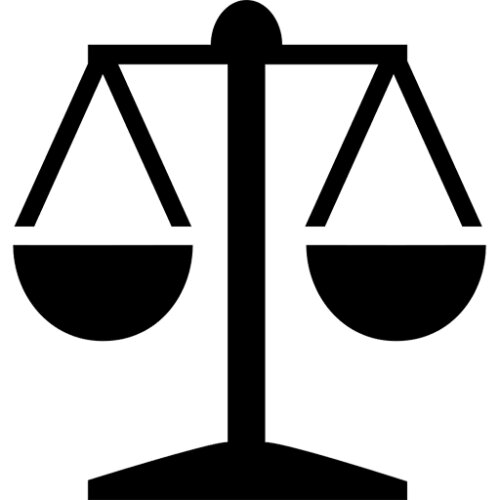Best Patent Lawyers in Nice
Share your needs with us, get contacted by law firms.
Free. Takes 2 min.
List of the best lawyers in Nice, France
About Patent Law in Nice, France
Patent law in France is designed to protect inventors and their inventions, providing them with the exclusive rights to utilize, manufacture, and sell their innovations. In Nice, as in the rest of France, patent protection is governed by both national and international laws, ensuring inventions are protected against unauthorized use. The French National Institute of Industrial Property (INPI) is the primary body responsible for handling patent applications and enforcement.
Why You May Need a Lawyer
There are several situations where seeking the help of a patent lawyer might be necessary:
- Filing a patent application: The process can be complicated, requiring professional knowledge to ensure your patent application is correctly completed and filed.
- Patent enforcement: If you believe someone is infringing on your patent, a lawyer can help you take the necessary legal actions.
- Patent litigation: Disputes regarding patent validity or infringement often require skilled legal representation.
- Patent strategy: A lawyer can advise on effective strategies for managing your patent portfolio and protecting your intellectual property rights.
- International patents: Navigating the complexities of seeking patent protection in multiple countries can be daunting without legal assistance.
Local Laws Overview
Patent protection in Nice, France, is primarily governed by French law, supplemented by international agreements and treaties such as the European Patent Convention (EPC) and the Patent Cooperation Treaty (PCT). Key aspects of local patent law include:
- Eligibility: Inventions must be new, involve an inventive step, and be industrially applicable to qualify for patent protection.
- Application process: A patent application must be filed with the INPI, including claims, descriptions, drawings (if necessary), and an abstract.
- Examination: The INPI examines the patent application for compliance with legal requirements and whether the invention is novel and non-obvious.
- Publication and opposition: After 18 months, the application is published, allowing third parties to oppose the patent grant.
- Duration: Patents in France are generally valid for 20 years from the filing date, subject to the payment of annual maintenance fees.
Frequently Asked Questions
1. What is a patent?
A patent is a legal document granted by the government that gives an inventor the exclusive right to make, use, and sell an invention for a certain period, typically 20 years.
2. How do I apply for a patent in France?
You must file a patent application with the INPI, including a detailed description of your invention, claims defining the invention's scope, and any necessary drawings or diagrams.
3. How long does it take to get a patent in France?
The patent application process in France can take several years, depending on the complexity of the invention and any objections or oppositions raised during examination.
4. Can I file a patent application without a lawyer?
Yes, it is possible to file a patent application without a lawyer, but due to the complexity of the process, having professional legal assistance is highly recommended.
5. What should I do if someone is infringing on my patent?
If you believe your patent is being infringed, consult with a patent lawyer to discuss enforcement options, which may include cease-and-desist letters, negotiations, or legal action.
6. Can I get patent protection outside of France?
Yes, you can seek international patent protection through treaties such as the European Patent Convention (EPC) and the Patent Cooperation Treaty (PCT), but each application must be filed in the individual countries where protection is sought.
7. What is the cost of obtaining a patent in France?
The cost varies depending on the complexity of the invention and legal fees. Filing fees, examination fees, and maintenance fees must be considered, along with potential legal representation costs.
8. How long does patent protection last?
In France, patent protection generally lasts for 20 years from the filing date, provided that annual maintenance fees are paid.
9. Can I sell or license my patent?
Yes, you can sell or license your patent to others, allowing them to make, use, or sell the invention in exchange for payment or royalties.
10. What is a patent search, and why is it important?
A patent search involves reviewing existing patents to ensure your invention is novel and not already patented. It is an important step to avoid infringement and strengthen your patent application.
Additional Resources
Here are some useful resources and organizations related to patent law in Nice, France:
- The French National Institute of Industrial Property (INPI)
- European Patent Office (EPO)
- World Intellectual Property Organization (WIPO)
- Local patent law associations and legal aid organizations
- Patent law firms and practices specializing in intellectual property
Next Steps
If you require legal assistance in patent matters, consider the following steps:
- Research and contact a reputable patent lawyer or law firm specializing in intellectual property.
- Schedule a consultation to discuss your situation and determine the best course of action.
- Gather all relevant documentation, including descriptions, drawings, and any prior art references.
- Prepare a list of questions and concerns to address during your consultation.
- Consider joining local patent organizations or attending workshops to stay informed about patent law developments.
By following these steps, you can effectively navigate the complexities of patent law and protect your valuable inventions.
Lawzana helps you find the best lawyers and law firms in Nice through a curated and pre-screened list of qualified legal professionals. Our platform offers rankings and detailed profiles of attorneys and law firms, allowing you to compare based on practice areas, including Patent, experience, and client feedback.
Each profile includes a description of the firm's areas of practice, client reviews, team members and partners, year of establishment, spoken languages, office locations, contact information, social media presence, and any published articles or resources. Most firms on our platform speak English and are experienced in both local and international legal matters.
Get a quote from top-rated law firms in Nice, France — quickly, securely, and without unnecessary hassle.
Disclaimer:
The information provided on this page is for general informational purposes only and does not constitute legal advice. While we strive to ensure the accuracy and relevance of the content, legal information may change over time, and interpretations of the law can vary. You should always consult with a qualified legal professional for advice specific to your situation.
We disclaim all liability for actions taken or not taken based on the content of this page. If you believe any information is incorrect or outdated, please contact us, and we will review and update it where appropriate.









